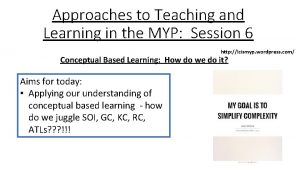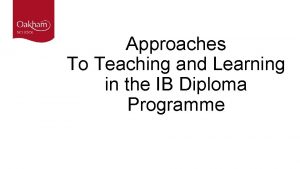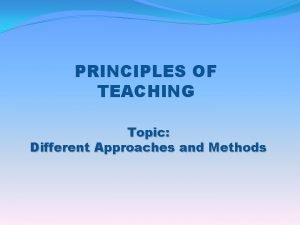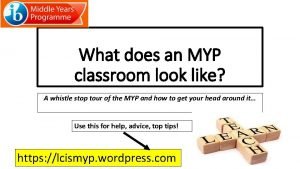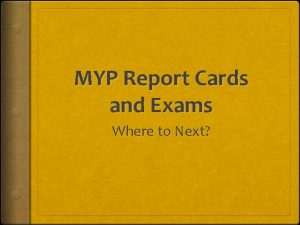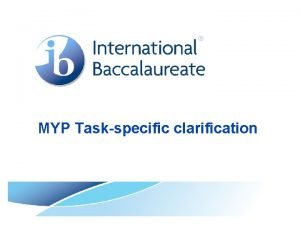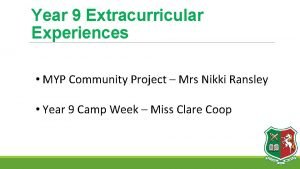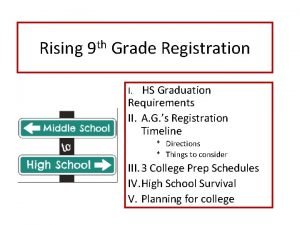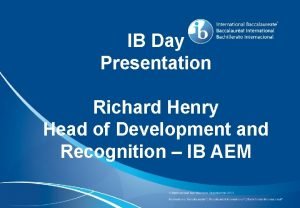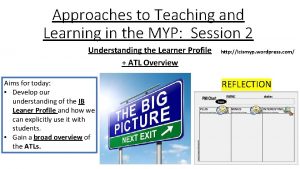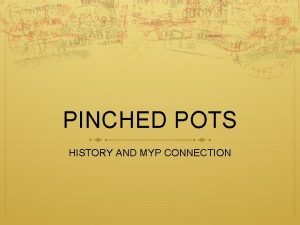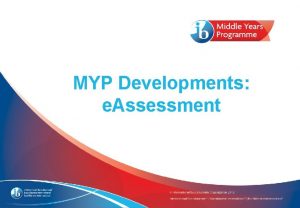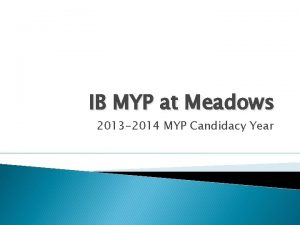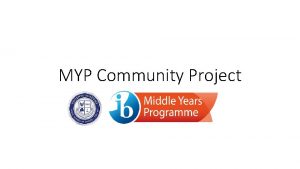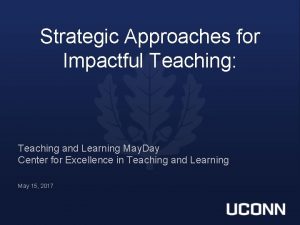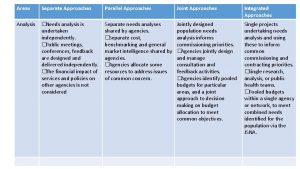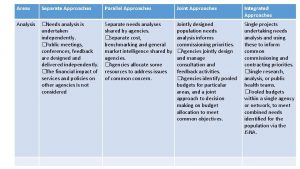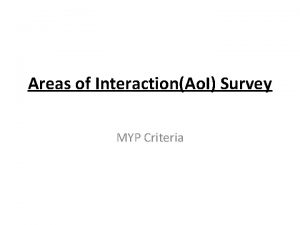Approaches to Teaching and Learning in the MYP












- Slides: 12

Approaches to Teaching and Learning in the MYP: Session 6 http: //lcismyp. wordpress. com/ Conceptual Based Learning: How do we do it? Aims for today: • Applying our understanding of conceptual based learning - how do we juggle SOI, GC, KC, RC, ATLs? ? ? !!!

The Curriculum How do you get there? What should it look like? The MYP gives schools a framework but essentially we have freedom to plan our own curriculum. • Backwards planning is essential. What do we want our DP students to look like? What skills do they need to have and what content do they need to have covered? • Managebac can be a useful planning tool BUT it doesn’t ensure that we teach through concepts or contexts or ATLs. We need to shift to a mindset of teaching through these elements.

Vertical Planning – ensuring continuity and progression from Year 1 to Year 5 of the programme…. What do our learners need at DP level / i. GCSE level? How can we ensure they experience the content and develop the skills they will need? Horizontal Planning – Using the key concepts and global contexts collaboratively. Teachers working with the same year level should work together between and within subject groups to plan the scope of learning. How can we do this in a creative way?

What do we need to think about? We need to develop: • Learner profile attributes • Conceptual understanding – key and related concepts • Incorporation of global contexts • Approaches to learning (ATLs) • Subject-group objectives From these elements, subject-group overviews and unit planners need to be developed. Service and Action activities arising from inquiry can also be added.

Curriculum map / subject –group overview Big picture of learning to: • • Ensure all required key concepts are included Address all related concepts Explore the complete range of global contexts Offer students opportunities to meet all objectives in a balanced way This can also help with identifying common concepts or contexts among subject groups that could prepare basis for interdisciplinary learning.

Subject-group overview



Exploring a unit: How do you create a SOI? SOI: Students understand that different perspectives in society has often led to marginalised groups or individuals being treated unfairly. Critical readers recognise the impact of context (location and situation) and the writer’s development of character in contributing towards an understanding of theme and the representation of individuals or social groups. Key Concept: Perspectives Related Concepts: Context, Character, Theme Global Context: Fairness and Development Conceptual Question: How does the perspective of society relate to current global issues of fairness with marginalized groups and what parallels can be drawn to the text?

MYP Unit / lesson planning • Key Concept: • Related Concepts: Using a unit that you already teach, work on the building blocks for it ensuring that there are links between all the elements. • Global Context: • Statement of Inquiry: • Approaches to teaching Approaches to Learning Assessment Related Concept(s)? Key Concept? • and learning: • Assessment: Global Context? Statement of Inquiry?


Discussion Point: What would you like to focus on at the start of next year? How might you do this?
